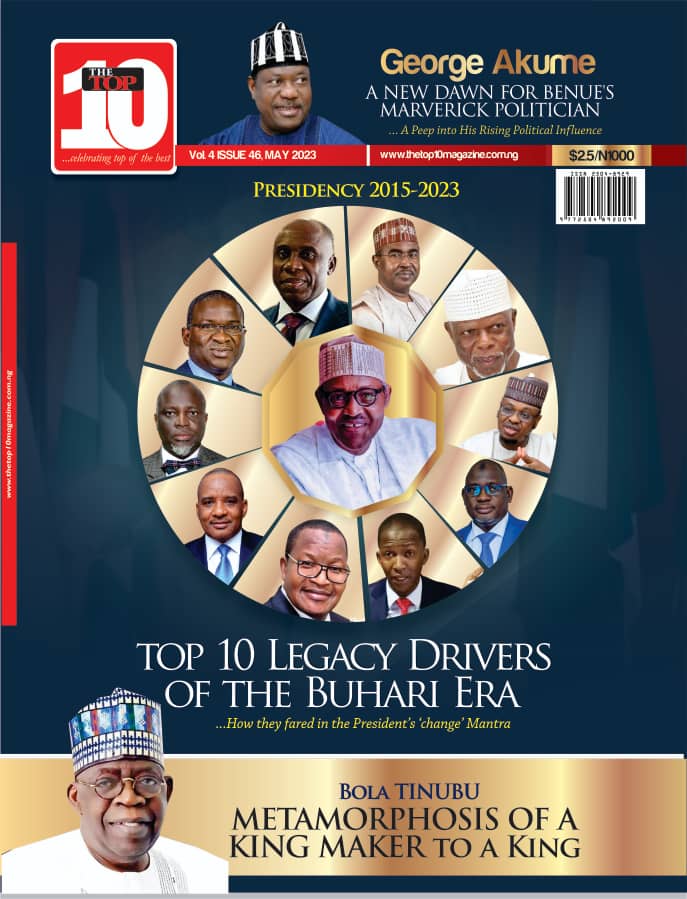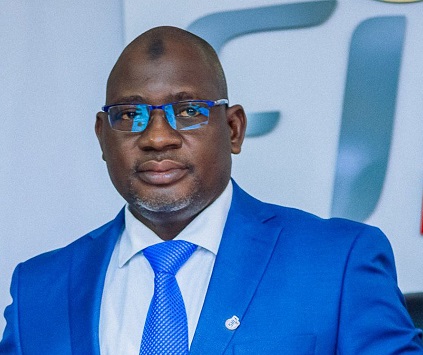Dr. Muhammed Nami, executive chairman, Federal Inland Revenue Service [FIRS], was called in
to take over the job of building tax revenue, which became critical in the face of disappointing
oil earnings. A significant increase in tax revenue was needed to reduce widening fiscal gap as
oil prices faltered and debt servicing requirements expanded.

Dependence on increased non-oil earnings, led by tax revenue therefore became imperative to
provide the fiscal space. The expectations however weren’t being met and the initial reading of
five years of missed tax revenue targets needed to change.
Nami is the man for the change in the tax revenue narration and his task is to drive a new
regime in tax administration where government can depend on tax revenue to close the fiscal
gap.

The need was pressing to generate funds needed for fiscal injection in public services and
infrastructures for the government to deliver on promises. The various tiers and arms of
government and by extension the well-being of all Nigerians involve enormous funding
requirements.
Nami understood that the responsibility placed on his shoulders is critical to the smooth
operations of the entire organs of government and he was poised to meet the challenge. The
versatile tax administrative specialist assured the nation that “we cannot therefore afford to fail
in this regard”.
Besides understanding the intensity of the job, he has robust professional credentials cutting
across the entire waterfront of knowledge and experience needed to deliver on mandate.
He has implemented a grand policy reform and institutional re-organisation at FIRS and rolled
out agenda of tax-driven solutions to Nigeria’s earnings volatility. The agenda are driven by
application of technological innovations in the tax administrative machinery.
The changes align with the global trend where deployment of appropriate technology has
become an effective means of enhancing tax revenue.
Nami set tough goals for himself at FIRS – which is to take Nigeria’s tax-to-GDP ratio from 6
percent to the World Bank-recommended threshold of 15 percent. The target, he said, needs to
be attained in order to avail government the benchmark for realising its economic growth and
poverty reduction agenda.
Nami also set out on a mission to slash Nigeria’s VAT gap from as high as 70 percent – one of
the highest even by African standard.
His strategy for attaining the goals is to transform the length and breadth of tax administration
and compliance landscape in Nigeria. He brought into play the full cardinals of professional
practice he is made of to lead the way on how a model tax administrative system should run.
He constructed four cardinal pillars around which the programmes to reposition the service for
enhanced performance are anchored. The four-point agenda are rebuilding FIRS’ institutional
framework, robust collaboration with stakeholders, building a customer-centric institution and
making FIRS a data-centric institution.
Plugging loopholes of tax evasion exploited by individuals and businesses is an area he
identified as critical to the success of his mission at FIRS. He found a solution in the application
of technology through the deployment of technology-based intelligence-gathering and
information-sharing.
Nami also deployed technology in tax collection through innovative links to business premises
using a central server. The innovative steps have paid off by enlarging tax revenue capacity as
well as hitting new revenue targets.
By getting all transactions that bear on taxes payable captured directly in line with the globally
accepted standard, FIRS’ tax revenue capacity has expanded.
Nami set out on a task, which is to have everyone, who wants to benefit from the nation’s
commonwealth, become contributors to the wealth of the nation. He has led a major campaign
aimed at turning tax evaders into national wealth builders.
His approach is to give a human face to tax administration. This involves a series of palliative
measures designed to cushion the burden of tax compliance on taxpayers.
Nami’s regime at FIRS has attained some milestones in reshaping the nation’s revenue structure
to prevent volatility in crude oil earnings from undermining budget performance and
implementation of development projects.
He has attained a major milestone with his grand design to reposition stamp duty as the next
major revenue growth driver for Nigeria. This constitutes a key element of tax revenue capacity
building strategy under Nami’s tenor at FIRS.
Nami has ushered in a new momentum in Nigeria’s tax administration, having progressively
moved FIRS towards delivering the much desired fiscal space for which the President called him
to duty.






